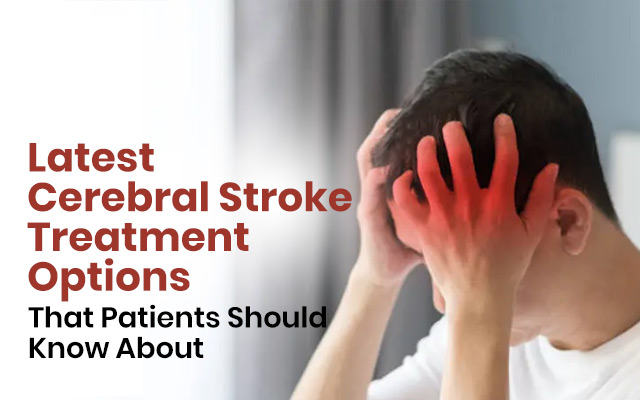A stroke can strike suddenly and change life instantly. Consulting Dr. Rohit Mishra, a cerebral stroke doctor in Kolkata, can save your loved ones’ lives. Learn about the latest stroke treatment options, emergency care, and recovery strategies.
Understanding Cerebral Stroke
Types of Stroke: Ischemic vs Hemorrhagic
Ischemic strokes occur when blood clots block brain arteries. Hemorrhagic strokes happen when vessels rupture and bleed.
Common Symptoms and Early Warning Signs
Sudden numbness, weakness, confusion, difficulty speaking, or severe headaches are warning signs.
Risk Factors Contributing to Stroke
High blood pressure, diabetes, smoking, obesity, and a sedentary lifestyle increase stroke risks. Family history also contributes.
Emergency Treatment for Stroke
Immediate Medical Interventions
Call emergency services immediately. Rapid assessment and stabilisation are crucial.
Clot Removal Procedures for Stroke
Clot retrieval or thrombectomy in ischemic stroke treatment restores blood flow.
Medications for Acute Stroke
Doctors may administer thrombolysis treatment for stroke to dissolve clots quickly.
Minimally Invasive and Advanced Stroke Therapies
Endovascular Therapy and Stent Placement
Catheter-based procedures remove clots or repair damaged arteries with minimal invasiveness.
Thrombolysis for Ischemic Stroke
Thrombolytic drugs dissolve clots and restore blood flow if given early.
Neurosurgical Interventions
Surgery may relieve pressure in hemorrhagic strokes or repair ruptured vessels.
Post-Stroke Rehabilitation
Physical Therapy and Mobility Training
Exercise programs improve strength, balance, and coordination for stroke recovery and rehabilitation.
Speech and Occupational Therapy
Speech therapy restores communication skills. Occupational therapy aids daily life activities.
Lifestyle Modifications for Recovery
Maintain a healthy diet, regular exercise, avoid smoking, and control blood pressure.
Medications and Long-Term Management
Blood Thinners and Anti-Platelet Therapy
These prevent clot formation and reduce the risk of recurring strokes.
Managing Blood Pressure and Cholesterol
Regular monitoring and medications help prevent further cerebrovascular events.
Preventing Recurrence
Lifestyle changes, routine checkups, and medication adherence reduce future stroke risks.
Emerging Therapies and Research in Stroke Care
Stem cell therapy, neuroprotective drugs, and advanced robotic rehabilitation show promise. Clinical trials continue to improve outcomes.
When to Consult a Neurologist
Seek expert care if you experience any sudden neurological symptoms. Early consultation saves brain function.
Patient Success Stories and Outcomes
Many patients recover strength, mobility, and independence through early intervention and rehabilitation.
Staying Informed for Better Stroke Recovery
Understanding stroke treatment options empowers patients and families. Timely care improves outcomes significantly.
Book a Consultation Today
Consult Dr Rohit Mishra, a cerebral stroke doctor in Kolkata. He offers expert evaluation and personalised treatment plans.
People Also Ask
What are the latest stroke treatment options?
Clot removal, thrombolysis, and minimally invasive surgery are common options.
How soon should a stroke patient receive treatment?
Treatment within the first few hours ensures the best recovery outcomes.
What is thrombolysis treatment for stroke?
It dissolves clots in ischemic strokes and restores blood flow.
Can physical therapy improve stroke recovery?
Yes. It strengthens muscles, improves coordination, and restores mobility.
What are the risks and benefits of minimally invasive stroke surgery?
Benefits include less pain and faster recovery. Risks involve rare complications like infection or nerve injury.

